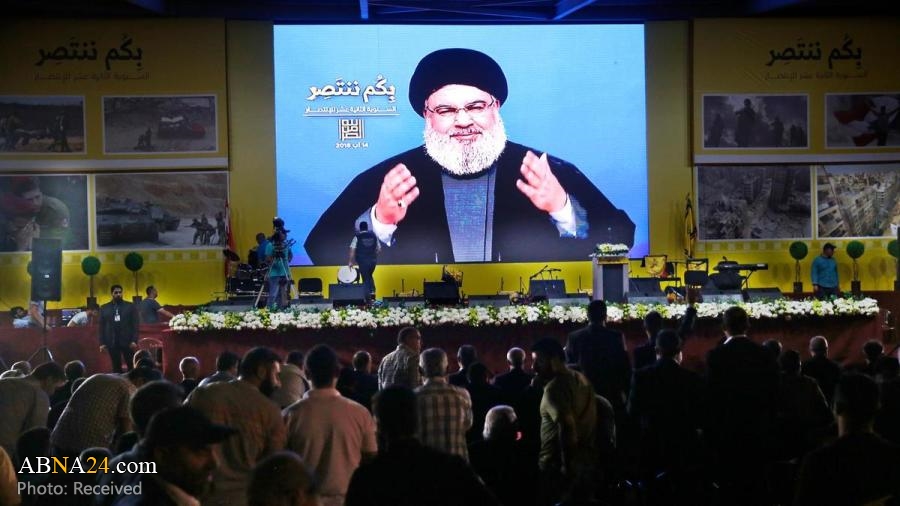AhlulBayt News Agency (ABNA): The 14th anniversary of Lebanese Hezbollah victory over the Israeli regime in the 2006 war was marked while Lebanon is grappling with foreign conspiracies meant to undermine the resistance in the country in the face of Tel Aviv.
Still, the win over the armed-to-the-teeth Israeli military which before the 33-Day War was bragging about its invincibility label injected new hope into the resistant movement and Lebanon as a whole to repeat victory over the foreign plots that are targeting the country’s unity.
33-Day War, a turning point in the regional equations
Hezbollah defeated the formidably armed Israeli military in the 2000 war and forced it to hand over the Lebanese territories and retreat from the country, marking the first victory of the Muslim and Arab world over the Israeli regime. Six years later, it repeated the triumph over the Israelis, exhibiting to the world in the best possible way the hollowness of the Israeli military might claims.
Hezbollah won the fierce battle against Tel Aviv at a time when a belief of the Israeli army unchallengeablity dominated the mind of the Arab world’s leaders and strategists. The Arab mentality was that since the Arab militaries lack the power to face the Israeli military might and they in the past lost heavily to it, the best possible approach is to accept the Israeli expansionist and hostile policies and come to terms with them.
However, the 2000 Israeli defeat and then 2006 defeat from Hezbollah brought the Muslim and Arab world focus to Hezbollah power and gave the public opinion across the Muslim and Arab world that the Israel is not a undefeatable regime and that there is no way better the resistance against the Israeli excesses and expansionism. This policy best leads to victory, the nations across the region began to admit.
Before the 33-Day War, the Israeli leaders and policy-making circles daily repeated their resolution to realize their Nile to Euphrates dream, also called “from the river to the sea” dream. But Hezbollah's resistance and painful blows to the Israeli army delivered the reverse, telling people that the occupying regime is now badly confined to the occupied Palestinian territories. Hezbollah win proved to the Arab public that not only the Israeli leaders’ Nile to Euphrates dream is shattered but also they now retract their stances and strive to save the status quo.
The 2006 win that delivered to Hezbollah more might and confidence gave the regional people the faith that a powerful actor with huge force to leave an influence on the Lebanese and regional equations has emerged and that from now on the regional equations will undergo considerable changes.
This marked a turning point in the course of Lebanon's developments. Since then Hezbollah transformed into a game-changer in the national policy as it added to its power thanks to growing popularity at home and abroad. It grew bigger and bigger to be not only a bulwark against possible new Israeli war against Lebanon but also turned into a nightmare in the Israeli dream to achieve what the Israeli regime designed to reach across the region since its creation in the 1940s.
Hezbollah power a guarantee to Lebanese and regional security
The important point after the 2006 war is that the war put Hezbollah in a path of military advancement that it not only offered protection to Lebanon as its home but also it became a reliance point to the regional countries in their struggle for security and stability. The Syria crisis is the best proof. Syria, a country that was targeted from multiple fronts by a string of Arab-Israeli-Western-supported terrorist groups to be undermined in the face of the Israeli regime and removed from the Iran-led Axis of Resistance camp, asked Hezbollah for deployment of forces to help with reclaiming territories lost to terrorist factions, the most highlighted of them ISIS. Hezbollah fast sent its forces in takeover of a cross-border role.
While Tel Aviv and other actors helping terrorism in Syria never believed Hezbollah increased its power to such a large scale, the Lebanese movement played a key role in the recapture of broad swathes of land from terrorist organizations. Tel Aviv and the West hoped that not only Hezbollah cannot come influential in its Syria role but also the engagement will erode its military capabilities. But Hezbollah's entry was game-changing, not only turning the tide in Damascus favor but also adding to the movement’s combat experience.
The regional developments that followed the two Hezbollah victories against the Israeli regime promoted its combat capabilities and role in the region’s political and security equations. Today Hezbollah represents an obstacle sturdier than ever in the face of the Israeli violations and hostility to Lebanon and the Muslim world.
Now that Hezbollah foes eye its weakness and destruction of its popular base using sheerest possible economic and political instruments, it can be asserted that as it stood firm in the wars and made possible the impossible, in the transformed war against it and the whole Lebanon, Hezbollah will stay vigorous and bring final victory to the Lebanese people.
/129

